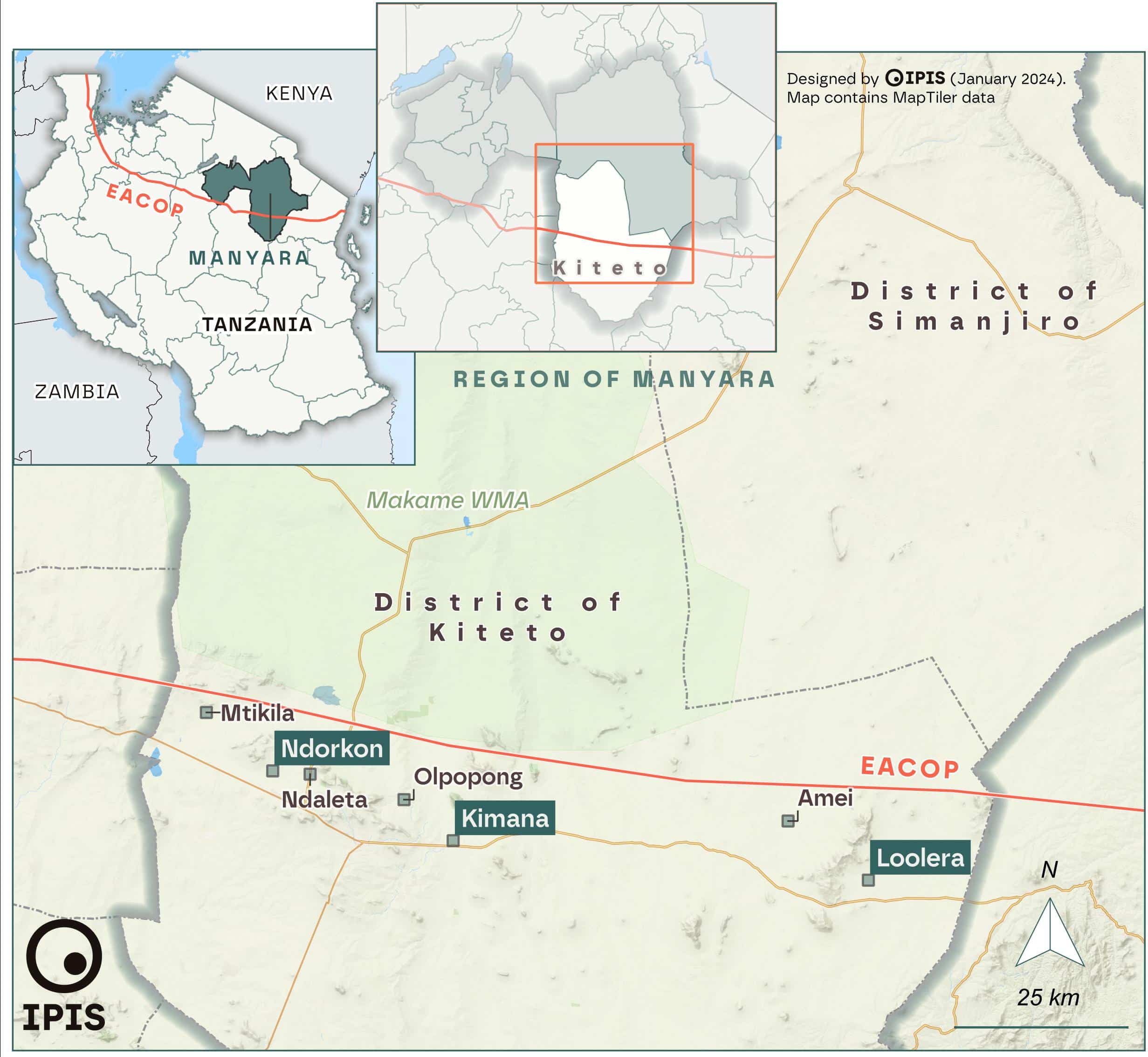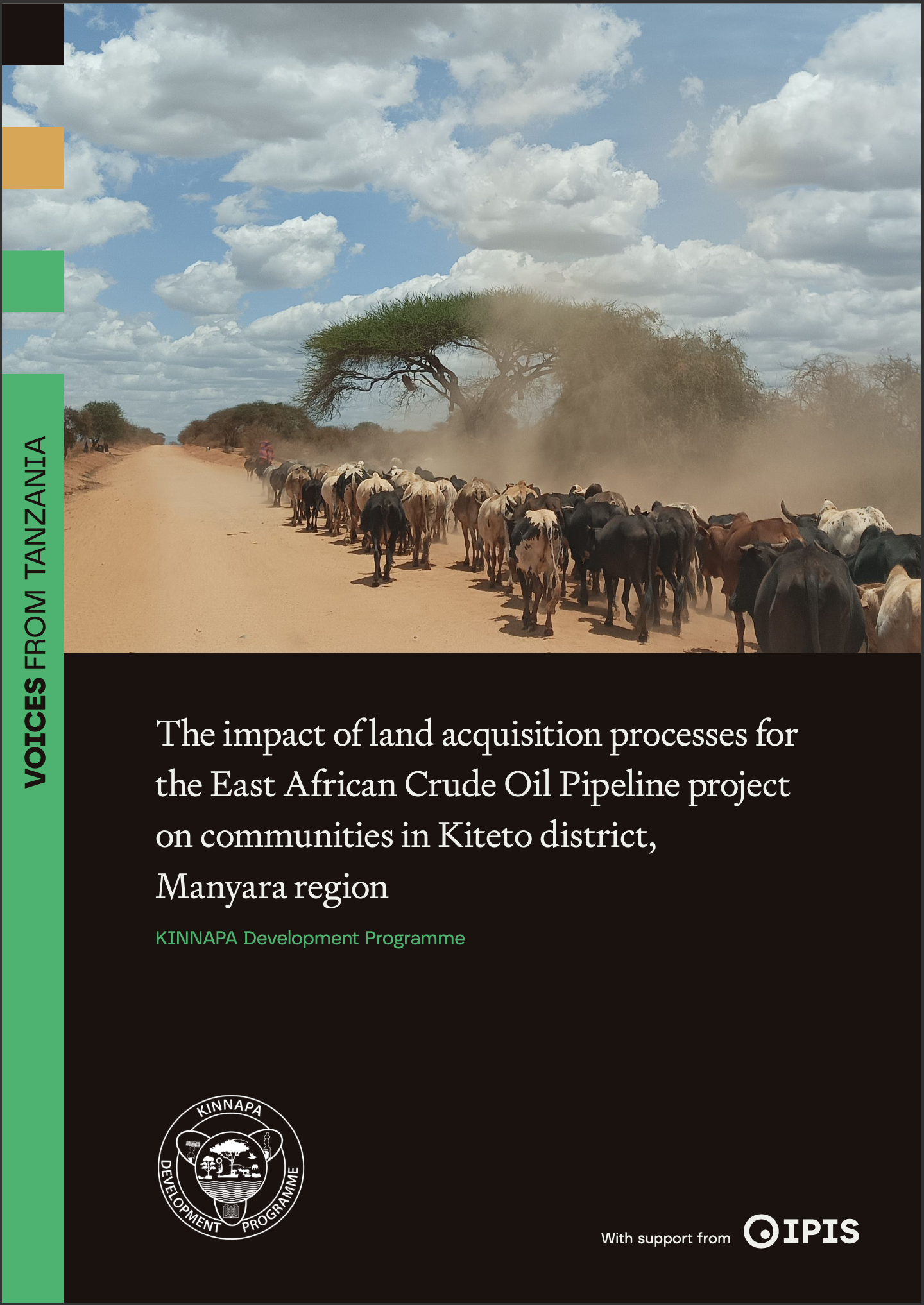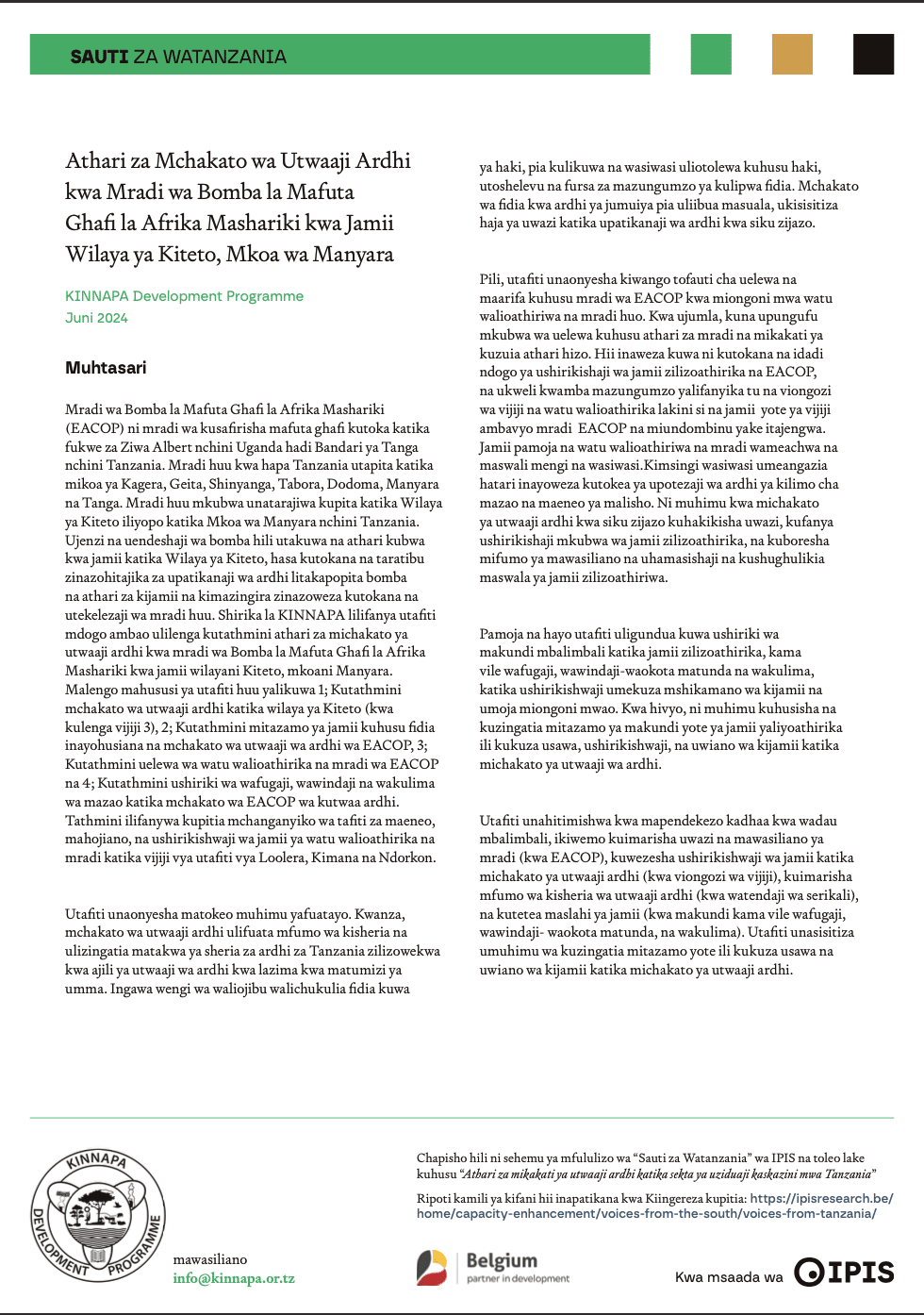This publication is part of IPIS’ Voices from Tanzania series and its edition on “The impact of land acquisition practices in the extractive sectors of northern Tanzania”.
In their Voices from Tanzania study Kinnapa Development Programme discusses the impact of land acquisition processes for the East African Crude Oil Pipeline (EACOP) project on 3 village communities in Kiteto district, Manyara region Tanzania.
The East African Crude Oil Pipeline (EACOP) is a major infrastructure project in East Africa to transport crude oil from Uganda’s oil fields to the Indian Ocean coast in Tanzania (Tanga). In Tanzania it will involve a 1,147 km long buried pipeline set to traverse 8 northern regions, including Kiteto district in Manyara region. After years of negotiations and delays, the EACOP project received necessary approvals and agreements from the Tanzanian government in 2020. After more delays, and a prolonged phase of acquiring land for the construction of EACOP infrastructure, the implementation of EACOP in Tanzania has seen significant progress since December 2023.
Land is crucial for the establishment and functionality of the EACOP project. A significant portion of the land is needed to establish the pipeline’s right-of-way, which is the corridor where the buried pipeline will be installed. Land is also required for the construction and operation of various facilities along the pipeline route. The construction and operation of this pipeline will have significant implications for the communities along the pipeline route, particularly due to compulsory land acquisition processes and the social and environmental impacts that may result from these.
Kiteto district is home to a diverse population of ethnic groups, whose activities are dominated by pastoralism and small-scale farming. For the creation of their livelihoods, their way of living, and their ability to deal with external stressors like climate change, these communities are strongly dependent on land and natural resources.
To assess the impact of EACOP land acquisition processes on agro-pastoral communities in Kiteto district, KINNAPA collected primary data from project affected persons in Loolera, Kimana and Ndorkon villages.
The findings from the study
The study reveals that, though the EACOP land compensatory system seems in accordance with the Tanzanian government rules and regulations, there is ambiguity over the transparency, inclusivity and fairness in the process. Most respondents were unaware of criteria that were used to decide the compensation amount and felt there was no room to verify, confirm or challenge compensation outcomes. For many pastoralists, the compensation process for communal land also raised issues.
Varied levels of awareness and knowledge about EACOP were found in the study. Concerningly, almost one out of three project-affected-persons revealed that they were not aware of EACOP, a project that is affecting them directly. Limited awareness and understanding could be due to the limited number of engagements between affected communities and EACOP, and the fact that engagements were only held with village leaders and affected people but not with members of the wider communities in which the EACOP infrastructure will be build. Overall, affected people and communities are left with many questions and concerns. A positive aspect that was seen was the enhanced social cohesion among different community groups in affected villages as the topic of EACOP provided opportunities for pastoralists, hunter-gatherers and crop farmers to exchange and to find common ground.
Need for greater transparency to prevent future drivers of conflict
The study highlights the need to enhance EACOP transparency and communication with affected communities, to better facilitate community engagement in land acquisition processes and especially that of pastoralists, hunter-gatherers, and crop farmers. The study underscores the importance of considering all perspectives in land acquisition for investment, to promote fairness, understanding and social cohesion.
Several recommendations have been formulated in the study, urging key stakeholders (EACOP, local and national authorities, and affected communities) to take a multi-pronged approach to resolve remaining issues related to land acquisition, in order to mitigate future drivers of conflict. Recommendations include the call for enhancing transparency on EACOP’s processes, impacts and compensation framework, strengthening options for compensatory negotiations and increased participation for affected communities, capacity building and training for empowerment of affected communities, and the strengthening of legal frameworks regarding land acquisition, including monitoring their implementation.
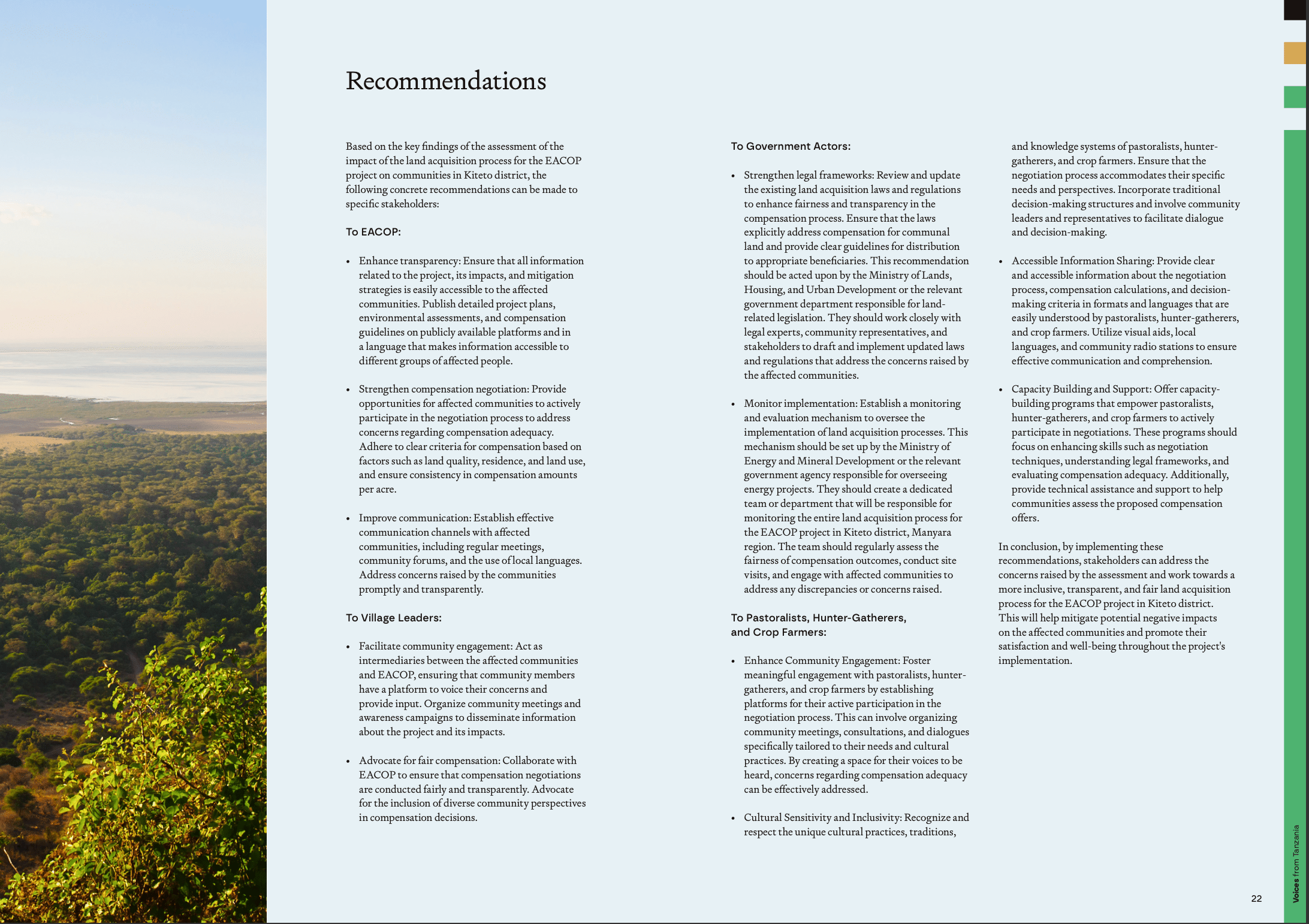
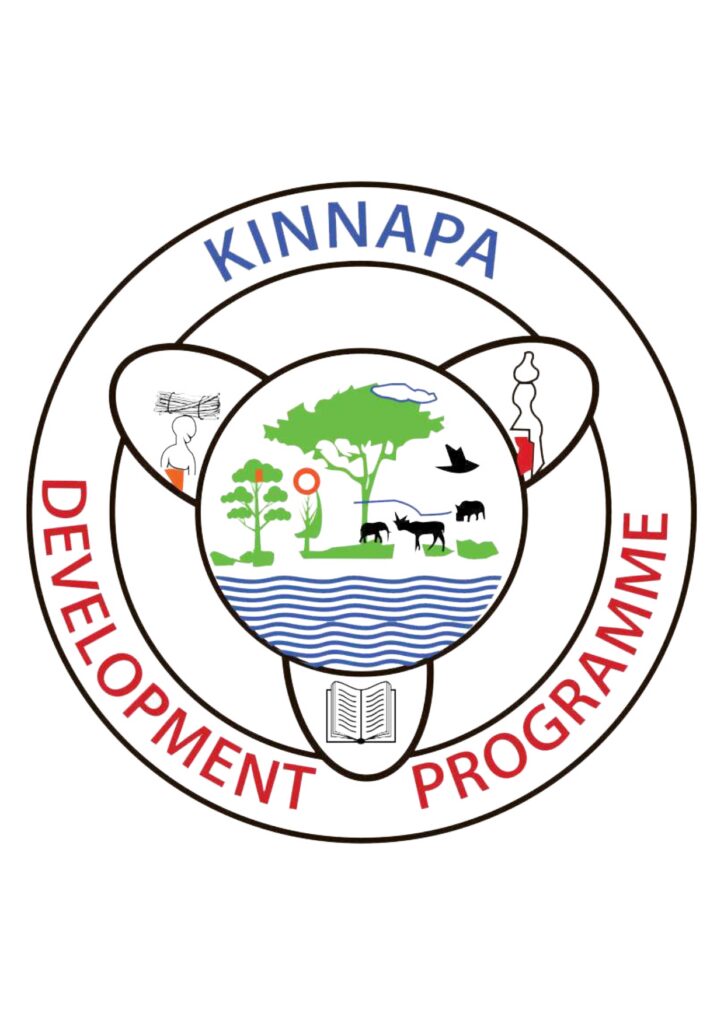
KINNAPA Development Programme is a community-based not-for-profit organization established in the early 1990s by people from six villages to deal with land encroachment issues facing pastoralists and peasants in the district of Kiteto. KINNAPA looks to achieve good and quality lives for pastoralists, small-scale farmers and hunter-gatherers by supporting social-economic services, natural resources management and good governance.

This publication has been produced with the financial assistance of the Belgian Directorate-General for Development Cooperation and Humanitarian Aid (DGD). The contents of this document can under no circumstances be regarded as reflecting the position of the Belgian Development Cooperation.
The publication does not represent IPIS’ research or views. It is based on the surveys and analyses conducted by Tanzanian civil society organisations and solely belongs to them.

